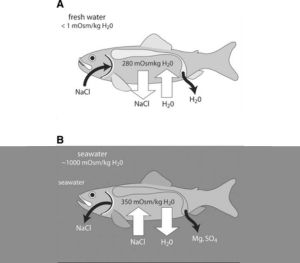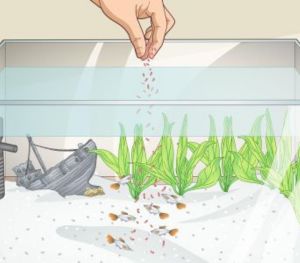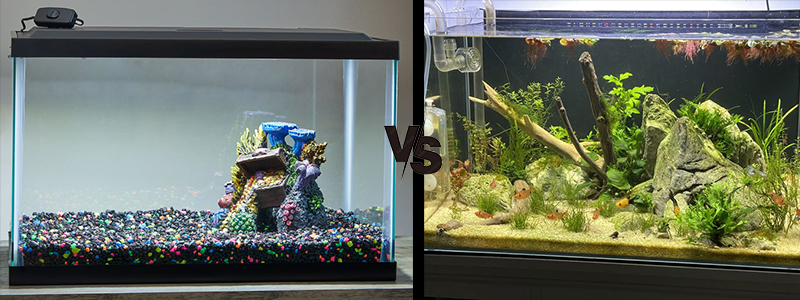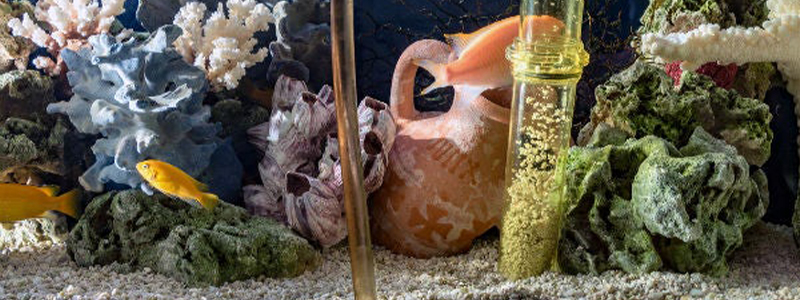Having an aquarium or even going fishing can be a tricky business. It is not all glitters and gold, as you must carefully scrutinize your options in terms of the kind of fish that you want to buy – saltwater or freshwater fish.
Acknowledging the difference between saltwater and freshwater fish is important for several reasons. Firstly, it is crucial for anglers and fishers who want to catch fish for sport or sustenance. Different types of fish require different fishing techniques and equipment, and knowledge of the differences between saltwater and freshwater fish can help anglers increase their chances of success.
Moreover, understanding the differences between saltwater and freshwater fish can also be important for consumers who want to make informed decisions about the fish they eat. Different types of fish have different flavors, textures, and nutritional profiles, and knowing the difference between saltwater and freshwater fish can help consumers choose the fish that best meets their needs and preferences.
In addition, knowledge of the differences between saltwater and freshwater fish can also be important from an ecological perspective. Understanding the habitats and behaviors of different types of fish can help us better understand and protect these species, which can be crucial for maintaining healthy and sustainable aquatic ecosystems.
Disclosure: This article contains affiliate links. When you follow a link to purchase the products, I sometimes earn a commission, at no additional cost to you. Read my full disclosure here
Key Differences Between Saltwater and Freshwater Fish
- Habitat and environment
Saltwater fish live in oceans and seas, which are much saltier than freshwater environments. Freshwater fish, on the other hand, live in rivers, lakes, and other bodies of freshwater that have much lower salinity levels. - Adaptation and physiology
Fish that live in saltwater and freshwater environments have different physiological adaptations that allow them to survive in their respective habitats. For example, saltwater fish have specialized organs that help them regulate the salt concentration in their bodies, while freshwater fish have adaptations that allow them to conserve salt. - Nutrition and diet
The differences in nutrient availability in saltwater and freshwater environments result in different diets for saltwater and freshwater fish. Saltwater fish tend to have a diet that is high in protein and fat, while freshwater fish may have a more diverse diet that includes plant matter and insects. - Fishing techniques and regulations
Different fishing techniques and regulations are used for catching saltwater and freshwater fish. For example, saltwater fishing typically involves deep-sea fishing and the use of larger boats and equipment, while freshwater fishing may involve smaller boats or even shore fishing.
Now that we know the key differences between the two fish, let’s dig into knowing the difference between saltwater and freshwater environment in which each of them resides.
Characteristics of A Freshwater Environment
Freshwater environments are characterized by low salt content and include lakes, ponds, rivers, and streams. Some of the key characteristics of freshwater environments are mentioned below:
- Low salinity: Freshwater environments have a low concentration of salt, with salt levels usually less than 1%.
- Temperature variation: The temperature of freshwater environments can vary greatly depending on the location and season. Water temperatures can range from freezing in winter to warm in summer.
- Fluctuating water levels: Freshwater environments can experience changes in water levels due to precipitation, evaporation, and human activity.
- Nutrient-rich: Freshwater environments tend to be rich in nutrients, including nitrogen and phosphorus, which support the growth of aquatic plants and other organisms.
Characteristics of A Saltwater Environment
Saltwater environments have a much higher salt content and include oceans, seas, and saltwater lakes. Some of the key characteristics of saltwater environments are mentioned below:
- High salinity: Saltwater environments have a high concentration of salt, usually between 3.5% and 5%.
- Stable temperature: The temperature of saltwater environments is relatively stable, with little variation between seasons.
- Deep and vast: Saltwater environments cover more than 70% of the earth’s surface and can be several miles deep in some areas.
- Diverse ecosystem: Saltwater environments are home to a diverse range of organisms, including fish, whales, dolphins, sharks, and other sea creatures.
Conclusion
All in all, it can be said that understanding the differences between saltwater and freshwater fish can be important for not only anglers and fishers but also consumers. Freshwater fish tend to have a lower salinity environment, fluctuating water levels, and a nutrient-rich diet. Saltwater fish, on the other hand, live in a high salinity environment, have stable temperatures, and have a more diverse ecosystem. These differences can affect the taste, texture, and nutritional content of the fish, as well as the fishing techniques and regulations used to catch them.
When it comes to choosing fish to eat or catch, it is important to consider the environmental impact of your choices. For instance, overfishing and habitat destruction can have a significant impact on fish populations and the overall health of aquatic ecosystems. Some species of fish, such as bluefin tuna and Atlantic salmon, are particularly vulnerable to overfishing and should be avoided or consumed in moderation. Hence, it is recommended to choose fish that are sustainably sourced and caught using environmentally-friendly methods. Additionally, consumers should pay attention to the labels on the fish they purchase to ensure that they are accurately labeled and free of contaminants.
By making informed choices about the fish we catch and eat, we can help to protect the health and diversity of our aquatic ecosystems for future generations.








